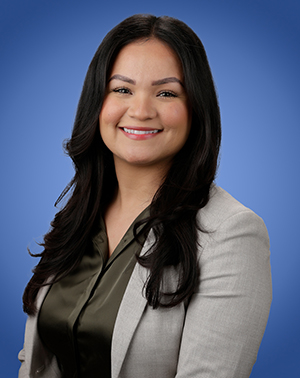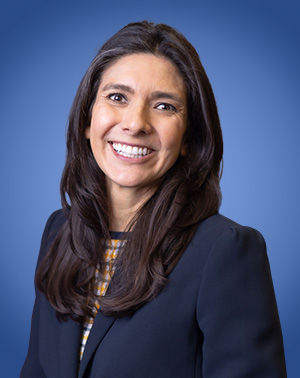Lozano Smith's attorneys serve as labor and employment counsel to hundreds of public agencies across the State of California. The firm's expertise covers the full spectrum of labor and employment law; from hiring employees and drafting employment contracts, to collective bargaining, contract grievances and matters of discrimination, retaliation, and misconduct, to layoffs, discipline, and dismissals. We are well qualified to provide legal assistance on virtually any labor and personnel issue involving certificated, classified, and administrative employees.
Areas of Practice
The attorneys in Lozano Smith's Labor and Employment Practice Group provide the following services, among others:
Human Resources/Personnel Matters
- Legal counsel on major and minor discipline: counseling, warnings, reprimands, suspensions, demotions, and dismissals
- Legal counsel on reductions in force (layoffs), last chance agreements, severance and settlement agreements
- Legal counsel on fringe benefits issues for current and retired employees: health and welfare benefits generally and public pension benefits (CalPERS and CalSTRS)
- Legal counsel on wage and hour claims and concerns
- Legal counsel regarding subpoenas for employee records and employee testimony
- Legal counsel regarding an employee's request for defense and indemnity for workplace actions
- Legal counsel regarding issues of on-campus drugs, alcohol, firearms, child abuse, sexual misconduct, and other workplace safety concerns
- Legal counsel regarding employee privacy rights whether at the workplace, off-duty, or in on-line activities
- Legal counsel regarding leaves of absence, including FMLA, CFRA, PDL, ADA, industrial accident, differential, and catastrophic leave
- Training services required by AB 1825 for anti-sexual harassment and discrimination, as well as workplace bullying
- Conducting/overseeing workplace investigations, including complaints of sexual harassment, discrimination, retaliation, and whistleblowing
- Defense counsel in litigation regarding workplace discrimination, harassment, and retaliation
- Defense counsel in DFEH, EEOC, DIR, and OCR complaints including preparation of employer responses and a defense against claims
- Legal counsel regarding state and federal disability accommodations, including the interactive process and defending against claims
- Employee use of personal devices for public business, social media, appropriate use of the internet, and bring your own device (BYOD) policies
Employee Relations/Negotiations
- Chief Negotiator, or advising and supporting the District's Chief Negotiator, on collective bargaining issues including, but not limited to, salaries and benefits, furlough days and salary rollbacks, work hours and work year, contracting out work, and the effects of non-negotiable decisions
- Legal counsel in PERB statutory impasse procedures, including mediation, factfinding, strike preparations, and post-factfinding implementation
- Defense counsel in contractual grievance arbitration
- Legal counsel in PERB litigation on unfair labor practice charges that include bad faith bargaining, contracting out, interference, and discrimination/retaliation
- Legal counsel regarding labor organizing, bargaining unit determination and modification, and employee representation rights
Employment Litigation
While a significant portion of our firm's efforts are dedicated to conducting labor negotiations and providing employment advice, our attorneys have
extensive experience at trial and appellate level employment litigation on behalf of public agency and school district clients. Our advice and advocacy has
been sought in numerous sensitive, high profile cases and our attorneys have argued before the California Courts of Appeal, the California Supreme Court,
and administrative agencies including the Equal Employment Opportunity Commission (EEOC), the Department of Fair Employment and Housing (DFEH), Office for
Civil Rights (OCR) and the California Public Employment Relations Board (PERB).
Our attorneys have handled discrimination and civil rights litigation from the filing of the complaint through the rendering of a jury verdict in both
state and federal courts.
Our attorneys are experienced in personnel disputes related to disabled employees and employees returning from work-related injuries. We have devised and
implemented an interactive process to assist staff in reviewing requests for accommodation from employees with disabilities including returning employees
to work.
We have represented and defended public sector employers in matters involving all of the following state and federal labor laws:
- Title VII of the Civil Rights Act of 1964
- The Equal Pay Act of 1963 (EPA)
- The Age Discrimination in Employment Act of 1967 (ADEA)
- Title I and Title V of the Americans with Disabilities Act of 1990 (ADA)
- The Civil Rights Act of 1991
- Unruh Civil Rights Act
- The California Fair Employment and Housing Act
Investigations - Learn more
The inherent seriousness and sensitivity of workplace investigations often obligates an employer to hire an independent investigator to conduct a prompt and comprehensive investigation. Lozano Smith's Investigative Services Team, a specialist group within our Labor & Employment Practice Group, recognizes the challenges that come with investigations of employee, student, and parent complaints. These attorneys have expertly served as investigators and advisors to clients on a broad range of complaints and can help your district to navigate the investigations process. Working alongside K-12 school districts, community colleges, universities and other public agencies, the Investigative Services Team supports management in reviewing and responding to employee, student, and parent complaints in a fair, impartial, and legally compliant manner.
Title IX Impact Team
Lozano Smith’s Title IX Practice Area is comprised of specialists dedicated to the pressing issues faced clients. From athletics to sexual violence, this team advises, trains, and educates clients on the various components of Title IX – from prevention and mitigation to investigations resulting in disciplinary action. Areas in which the group provides advice and training include:
- Sex-based discrimination
- Issues relating to transgender employees
- Developing and auditing complaint grievance procedures and policies
- Responding to reports of sexual misconduct and harassment
- Investigating complaints of sexual misconduct and harassment
- Title IX Coordinator roles and responsibilities
- District and employee liability
- Reporting obligations
- Interaction with law enforcement agencies
- Discipline of employees
- Litigation
- VAWA/Clery Act
- Trainings
Training and Preventive Measures
The Labor and Employment Practice Group conducts a Legal Consortium for clients and countless in-service trainings and webinars each year. The seminars are
conducted throughout the state and also for individual clients, as requested. They provide in-depth information on a variety of topics to keep attendees
informed on latest legislation, case law and legal trends. Recent topics include Teacher Classification, Employee Discipline, Employee Evaluations and
Uniform Investigations and Complaint Processes.
The Labor and Employment Practice Group has expertly provided legal counsel to school districts and other public agencies in both high-profile disputes and
everyday transactions. Our attorneys are acutely aware of the financial and practical constraints placed on school districts and other public agencies in
the current economic climate and we work with our clients to explore all options toward achieving a practical, effective, and cost-efficient resolution of
their concerns.
Proactive Resolutions
The firm encourages its clients to build strong institutional knowledge of best practices in personnel matters, to consider alternative dispute resolution (including mediation when feasible), and to be proactive in resolving issues before they become costly problems. When litigation is unavoidable, our attorneys have successfully defended clients and prosecuted their claims in administrative hearings and in the courtroom.
Ninth Circuit Rules Age Act Does Not Apply to Medical Residency Admissions
October 30, 2025 Number 45 The Ninth Circuit Court of Appeals has ruled that the federal Age Discrimination Act of 1975 (Age Act) does not apply to decisions about whether to admit applicants to medical residency programs. In Spatz v. Regents of the University of California (9th Cir. 2025) 151 F.4th 1068, the court held that selection of medical residents by university and other residency programs constitutes an “employment practice” rather than an educational one and ther...
UPDATE: California Expands School District Obligations to Protect Students, Families, and Employees from Immigration Enforcement
October 3, 2025 Number 41 In response to the rescission of federal agency policies limiting immigration enforcement on school grounds (see Lozano Smith’s 2025 Client News Brief Number 9), Governor Newsom signed a series of bills, including Assembly Bill (AB) 49, Senate Bill (SB) 98, both of which took effect immediately, and AB 419 which takes effect January 1, 2026. These bills aim to expand protections for students, families, and employees of school districts by creating new ...
Ninth Circuit Upholds LAUSD COVID-19 Vaccination Requirement for Employees During Pandemic
September 12, 2025Number 39Ninth Circuit Upholds LAUSD COVID-19 Vaccination Requirement for Employees During Pandemic In Health Freedom Defense Fund, Inc. v. Alberto Carvalho, et al. (9th Cir. July 31, 2025), Case No. 22-55908, __ F.4th __ , the Ninth Circuit Court of Appeals determined that the Los Angeles Unified School District’s (LAUSD) now-rescinded COVID-19 vaccination requirement for employees did not violate constitutional law because it was rationally related to protecting the...
Ninth Circuit Affirms: Racist Images Circulated Via Personal Text Not a “Matter of Public Concern” Entitled to First Amendment Protection
September 10, 2025 Number 38 The Ninth Circuit recently issued an amended opinion in Adams v. County of Sacramento (9th Cir. 2005) 143 F.4th 1027, a case involving a former Sacramento County sheriff’s captain, and former Assistant Chief of Police for the City of Rancho Cordova, Kate Adams (Adams) who alleged she was forced to resign after allegations surfaced that she forwarded racist images via text message. Adams filed a lawsuit against the County of Sacramento alleging her employe...
California Courts Provide Important Clarifications Regarding Public Employee Whistleblower Claims
August 26, 2025Number 37 In two separate back-to-back recent decisions, California courts have given important wins to public employers in defending against employee whistleblower lawsuits under Labor Code section 1102.5. First, in Brown v. City of Inglewood (July 7, 2025) 18 Cal.5th 33, the California Supreme Court determined, for the first time, that elected officials are not “employees” who may sue for retaliation under that whistleblower law. Second, in Lampkin v...
School District Granted Immunity from Liability After Denying Remote Work as a Reasonable Accommodation
August 20, 2025 Number 33 In a recent decision by the California Fourth District Court of Appeal, a public school district successfully asserted immunity from liability from an employee’s discrimination claims based on being denied permission to work exclusively from home after the COVID-19 pandemic as a reasonable workplace accommodation. In Allos v. Poway Unified Sch. Dist. (2025) 112 Cal.App.5th 822, the appellate court held that the employee’s claims under California’...
Safer Rides Ahead? SB 88 Imposes Stricter Standards on all School-Related Student Transportation Starting July 1, 2025
June 30, 2025 Number 27 On October 7, 2023, Governor Newsom signed Senate Bill (SB) 88, which takes effect on July 1, 2025, and sets minimum health, safety, and oversight standards for drivers employed or contracted by school districts who transport students for any school-related transportation. Like many new laws, SB 88 poses many uncertainties and practical challenges for local educational agencies (LEAs) across the state in the effort of ensuring safe and reliable transportation f...
U.S Supreme Court Clarifies Majority-Group Plaintiffs Are Not Held to a Higher Evidentiary Standard in Title VII Employment Discrimination Cases
June 27, 2025 Number 25 On June 5, 2025, in Ames v. Ohio Department of Youth Services (2025) 145 S.Ct. 1540, the United States Supreme Court unanimously vacated the Sixth Circuit’s decision to dismiss the plaintiff’s reverse discrimination lawsuit, rejecting the lower court’s reasoning that the plaintiff failed to establish “background circumstances” to support the plausibility of reverse discrimination. The Court held that the standard of evidence for a...
Ninth Circuit Establishes Preliminary Framework for First Amendment Familial Antiretaliation Claims
June 10, 2025 Number 23 In DeFrancesco v. Robbins (9th Cir. 2025) 136 F.4th 933, the United States Court of Appeals for the Ninth Circuit held that university officials were entitled to qualified immunity in an action brought by a former employee alleging violation of his First Amendment right to be free from retaliation for his husband’s allegedly protected whistleblowing speech. In so holding, the court left unanswered the question of whether public employees have constitutio...
According to CalPERS, School Districts May Not Hire Retired CalPERS Annuitants While Recruiting
January 2025Number 4On December 18, 2024, CalPERS released a Circular Letter clarifying how school districts and community colleges may employ retired annuitants under the California Public Employees’ Retirement Law (PERL) and Public Employees’ Pension Reform Act of 2013 (PEPRA).Previously, pursuant to Government Code section 21221(h) and according to guidance issued by CalPERS on January 1, 2013, school districts and community colleges were considered a “contracting agency&...
Representative Cases
| Lozano Smith represented the City of Los Angeles in one of the largest class action disability lawsuits in the country. In Willits, Mark, et al. v. City of Los Angeles, the plaintiff filed an Americans with Disabilities Act (ADA) complaint to install curb cuts and sidewalk repairs throughout the City, to enforce the ADA. This case involved extensive E-Discovery of the City and its various departments’ internal data management system. The recently negotiated settlement will allow the City to completely revitalize its public right-of-ways to assure that all of the residents and visitors are able to fully participate in all of the available programs and services offered by the City. |
| In Avila v. City of Los Angeles, et al., U.S.D.C. Central District of California, Case No. 2:11-cv-1326-SJO-FMO, Lozano Smith successfully defended the City of Los Angeles and Los Angeles Police Department in an employment case. Following testimony, Lozano Smith asked the judge to dismiss certain claims because the officer had not introduced sufficient evidence. The judge agreed in part, and the jury was only asked to consider the officer's claims concerning retaliation under the FLSA and due process violations. The City and the LAPD prevailed on the due process claim, and liability for the FLSA claim was limited to 1% of the damages sought by the plaintiff. |
| Shiell, et al. v. County of Los Angeles, et al., Los Angeles County Superior Court Case No. BC208582, Equal protection action claiming staff members of a non-profit, public benefit corporation were entitled to the same rights, salaries and benefits of County employees because they performed the same work. A dispositive motion was brought on 3 issues: 1) statute of limitations; 2) entitlement to civil service; and 3) entitlement to County retirement benefits. The motion was decided in the County's favor. |
| Hall, et al. v. County of Los Angeles, Los Angeles County Superior Court Case No. BC208583, Approximately 200 female attorneys of a non-profit, public benefit corporation brought a sex discrimination suit claiming they were not receiving the same salaries and benefits as male employees of the County, even though they were doing the same work. The County brought a dispositive motion on the grounds that plaintiffs were using improper male comparators and had not shown any indicia of discrimination. The motion was granted in the County's favor. |
| Chisom v. Board of Retirement of County of Fresno Employees' Retirement Association (2013) 218 Cal.App.4th 400. A recent published decision upholding a decade-old settlement agreement and rejecting a group of retired Fresno County employees' attempt to use parole evidence to advance an interpretation of the settlement agreement that would have allowed the former employees to pursue their claims for an "enhanced" non-service-connected disability retirement benefit. |
| McIntyre v. Sonoma Valley Unified School District (2012) 206 Cal.App.4th 170. Lozano Smith attorneys successfully defended the school district against employee challenge to status and nonreelection. The California Court of Appeal reaffirmed key legal principles by holding that the school district correctly classified the employee as a temporary employee and then properly converted her to a probationary employee and properly and timely nonreelected employee during her second year of probationary employment. |
| Hildebrandt v. St. Helena Unified School District (2009) 172 Cal.App.4th 334. Lozano Smith attorneys authored an amicus brief on behalf of the California School Boards Association (CSBA) and asserted arguments that were adopted by the Court of Appeal in regard to bumping rights in a certificated layoff. This important case established a school district's right to refuse to "split" an existing full-time certificated position during a certificated layoff to accommodate a more senior employee's desire to "partially bump" into a more junior employee's assignment. |
| In Rimando v. Alum Rock Union Elementary School District, et al. (9th Cir. 2009) 356 Fed.Appx. 989, Lozano Smith successfully argued that a California public school district is a "State employer" for purposes of the Uniform Services Employment and Reemployment Rights Act of 1994 (USERRA) and consequently suits against school districts under USERRA must be filed in state court. The Rimando decision is the first of its kind by the Ninth Circuit to address USERRA suits brought against California public school districts. |
| Atwater Elementary School Dist. v. Department of General Services (2007) 41 Cal.4th 227. Lozano Smith attorneys successfully represented a school district and convinced the California Supreme Court to issue a landmark decision holding that the four-year limitations period for a school district to bring dismissal charges against a teacher is not absolute. As a result, the Supreme Court adopted the school district's contention that the four-year period should be extended based on principles of equity to permit the District to introduce evidence of sexual misconduct that was discovered by the district many years after it occurred. This important case strengthens the ability of all public school districts to impose discipline against certificated employees. |














































































